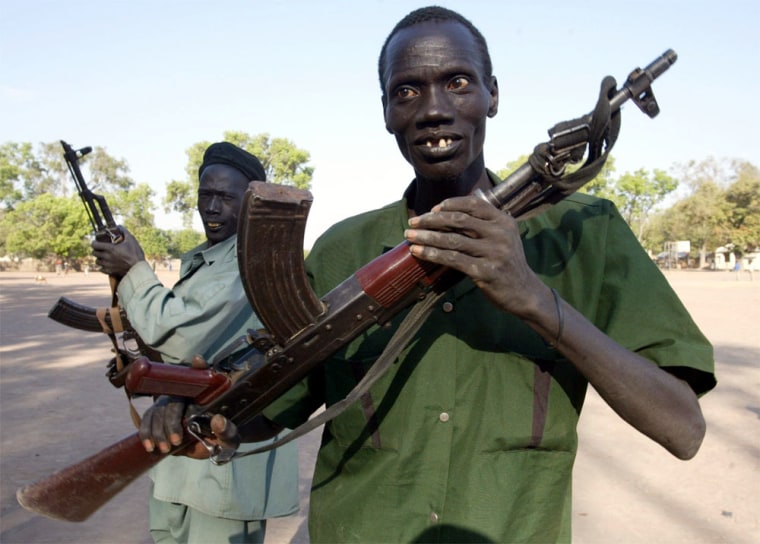The top United Nations envoy to Sudan arrived in the country’s southern rebel stronghold Tuesday to negotiate the deployment of up to 10,000 peacekeepers to monitor an accord aimed at ending Africa’s longest-running conflict.
U.N. and U.S. officials hope a solution to the 21-year-old war in the south will help end a separate conflict in the western Darfur region, which has killed an estimated 70,000 people and chased nearly 2 million people from their homes in less than two years.
Jan Pronk, who arrived with U.N. force commander Lt. Gen. Fazle Akbar of Bangladesh, told reporters upon his arrival at rebel headquarters in Rumbek that a number of countries had already committed troops to the peacekeeping operation, which is expected to cost $100 million to set up. He declined to provide details.
Elijal Makol, head of the rebels’ relief efforts, welcomed Pronk at the airstrip, saying the scale of reconstruction needs was huge in the south after two decades of war.
Global conference set for April
An international donors conference on Sudan is planned in April in Oslo, Norway. But Pronk warned that donors would be watching the Darfur situation closely before committing funds to reconstruction in the south.
Pronk, who is making his first trip to southern Sudan, then met with U.N. officials to get an assessment of humanitarian conditions in the region. He planned to have dinner with rebel officials Tuesday and begin talks with them on the peacekeeping mission Wednesday.
The United Nations plans to deploy troops within six months, during which time the government and rebels have committed to set up a national power-sharing administration with an autonomous south. At the end of a six-year transition period, the 10 southern states will hold a referendum on whether to become independent.
Annan report due this week
U.N. Secretary-General Kofi Annan is to submit a report on the peacekeeping mission to the Security Council later this week, including the proposed mandate, size and deployment schedule. The council plans to finalize details of the force by the second week of February, Pronk said.
Pronk believes the force will need between 9,000 and 10,000 troops. “It seems to be a big number, but the country is so huge that you will hardly notice them,” he said.
Pronk is pressing rebels to allow U.N. troops to carry weapons and to enter and leave the region without applying for permits, U.N. officials said. Rebel officials declined to comment on the talks.
It will be the first time Pronk meets with the rebel movement since it signed the peace deal with the Khartoum-based government Jan. 9 in neighboring Kenya.
May meet with rebel leader
Pronk also hopes to meet with John Garang, chairman of the rebel Sudan People’s Liberation Army, who is expected to arrive in the coming days in this arid, dusty town captured by the insurgents in 1997.
Sudan’s two-decade civil war pitted the government, led by Arab Muslims who dominate the north, against rebels fighting for greater autonomy and a greater share of the country’s wealth in the mainly black Christian and animist south. The conflict is blamed for more than 2 million deaths, primarily from war-induced famine and disease.
The Darfur conflict was sparked in February 2003 when two non-Arab African rebel groups took up arms for more power and resources. The government responded with a counterinsurgency campaign in which the Janjaweed, an Arab militia, has committed wide-scale abuses against the African population.
The United States has accused the Janjaweed of committing genocide. Sudan denies targeting civilians or allying with the Janjaweed.
